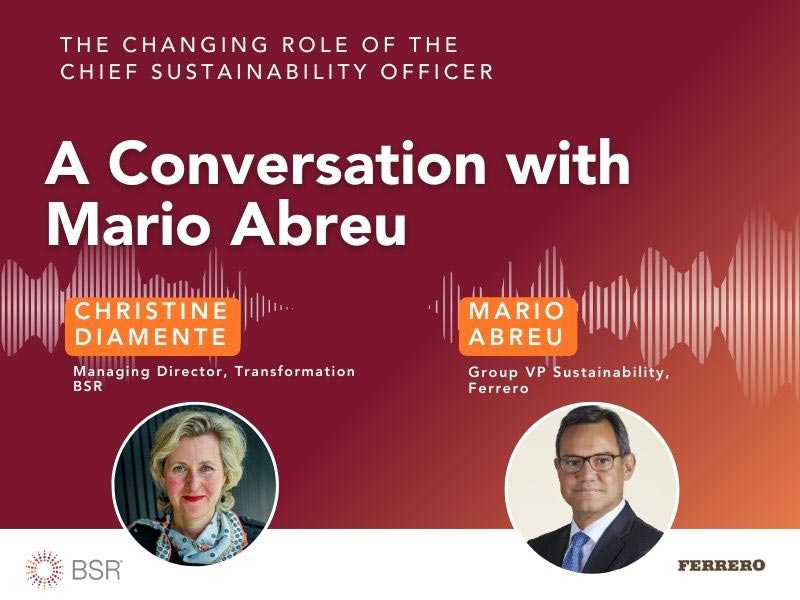
The evidence and impetus are powerful for integrating environmental, social, and governance (ESG) factors in private equity investing. In response, the sector is doing important work to protect against risk, enhance value, and improve sustainability. But it’s also time for a reality check: Swapping in energy-efficient light bulbs is important and necessary, but it is not sufficient to address the most pressing challenges facing the sector’s business and societal impacts. To address those challenges and stakeholder concerns—including from asset owners, media, employees, and regulators—the sector is evolving toward a more integrated and strategic approach to addressing sustainability impacts, such as good jobs, inclusive economy, sustainable solutions, and transparency.
ESG management practices are increasingly the norm among top U.S. firms and are spreading to the middle market. At BSR alone, we’ve seen an explosion in the number of advisory projects we conduct to support ESG integration, including projects to develop policies and strategies, conduct ESG diligence, and implement ESG at the portfolio level. This growth reflects several factors; chiefly, attention from limited partners (LPs) that invest in private equity firms, requests to portfolio companies’ customers, and the recognition that ESG factors are linked to effective long-term management and value creation.
Most U.S. private equity firms’ efforts focus on management of ESG basics at individual companies—and that makes sense. Efficiency and risk management projects on topics like water use and health and safety offer enormous opportunities to protect and create value while creating tangible sustainability benefits and demonstrating the “business case.”
As important as the focus on ESG basics is, though, it risks missing the forest for the trees. As the U.S. presidential election demonstrated, the public is deeply concerned—even angry—about the relationship among capital, business, and society. Gallup ranks confidence in big business at 6 percent, second-to-last on a list of American institutions; on a subsequent poll on attitudes toward business, the “banking” sector ranked 19 out of 25.
Whether or not it’s fair, private equity often gets the brunt of that negative perception and press due to a number of factors, including full ownership of portfolio companies, a history of limited transparency, complex remuneration structures, and headline-ready examples; it seems not a month goes by without a major media article on the negative impacts of a private equity deal.
These perceptions affect private equity firms in three particular ways. First, asset owners are increasingly concerned about ESG management and reputational risks. Major public pensions, such as in California, France, and Sweden, have adopted policies mandating attention to topics like climate change and human rights. The California State Teachers’ Retirement System (CalSTRS) notably divested from a private equity investment in firearms following a school shooting. University endowments are increasingly taking action in response to student concerns over climate and social impacts.
Second, the sector and its portfolio companies are in a fierce fight for talent, especially as more professionals with MBAs are drawn to Silicon Valley. Dustin Clinard, managing director at Universum Global, a firm that tracks employer popularity, noted: “MBA grads are placing an increasing amount of importance on companies that have an inspiring purpose. They do more than simply make money. They make money with a purpose of greater good to it.”
Finally, regulators and politicians at the U.S. federal and state level have put heavy scrutiny on the industry. In a rare moment of agreement in the 2016 U.S. presidential debates, both candidates expressed a desire to eschew the favorable tax treatment of “carried interest.”
Stakeholder concerns are not focused on whether private equity portfolio companies have health and safety policies or use water-efficient toilets. They are focused on more fundamental concerns about what types of companies private equity invests in, what they do with those companies, and what the impacts are on stakeholders. As a result, the sector’s challenges require more fundamental and strategic ESG thinking. While some firms are already making strides, the sector needs to become more broad, consistent, and bold in asking tough questions, such as:
- Which stakeholders are affected by our investment in a company and how?
- How do we create better jobs that benefit employees, communities, and investors?
- When we feel we must perform layoffs, how can we lessen the negative impacts? (To start, companies can learn from my colleague Susan Winterberg’s research on Nokia’s Bridge program.)
- How can we be more transparent and provide public information on our impacts and efforts, like Apax Partners, The Carlyle Group, Oak Hill Capital Partners, and others?
- How can we harness private capital to tackle some of the world’s greatest challenges, which firms like Bain Capital, KKR & Co., and TPG and are exploring?
In many ways, the evolution from efficiency and policy-driven approaches to more strategic, holistic sustainability integration parallels shifts in the broader corporate sustainability field. Other sectors like technology and consumer products began shifting from strategic philanthropy to sustainability efficiency to integrated approaches years ago. The private equity sector is on a similar path, with a lot of opportunities to advance.
The private equity sector has a powerful and positive role to play in deploying capital toward a sustainable, inclusive economy. While ESG professionals in private equity should remain focused on direct value creation, it is imperative to begin asking broader questions and developing strategic answers. If the investment sector wishes to talk the talk of fueling innovation, growth, good business, and societal benefits, it must also walk the walk—to employees, investors, communities, regulators, and the public.
Topics
Let’s talk about how BSR can help you to transform your business and achieve your sustainability goals.








